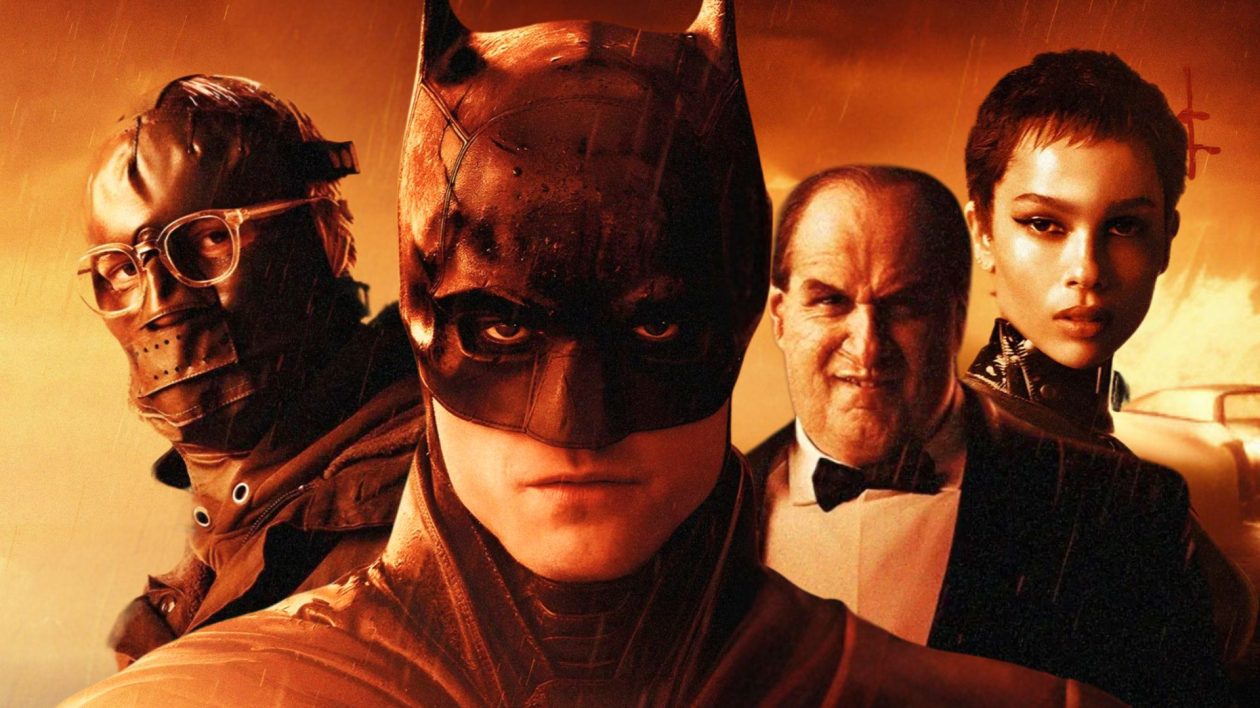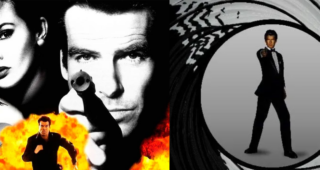For the new millennium, Batman puts on a new suit: Bruce Wayne’s. After two great episodes directed by Tim Burton, Joel Schumacher had left the super hero dead after two fights for the conquest of Gotham City dance floor. Eight years later, he is back, and he is younger than ever.
When you read the story summary, it clearly appears that the night upholder of the law experienced the same rejuvenating cure as his mates from M. Night Shyamalan’s Unbreakable. The director of The Village shot the birth of a hero in a realistic, pragmatic way, and thus set a new frame for the different adventures of the super heroes. Indeed, though their stories were highlighted by the special effects, Spider-Man and Hulk owed their renewal to the psychology and the realism of the treatment. In the same way, Batman Begins tells the story of the transformation of a man into a myth. They first thought of adapting Batman Year One written by Frank Sin City Miller and David Mazzucchelli , certainly because it related Batman’s first moves in Gotham City. Surprisingly, David Goyer’s (Blade 3) scenario is very close to the comics, especially in the atmosphere of the crime-eaten city very much alike 1970’s New York where Bruce Wayne has to face his evil parts as well as his enemies (you will note that many fights happen in damp streets, or close to fire escapes, like in the comics). Exit nasty Two-Face, here comes megalomaniac Ra’s Al Guhl and the crazy Scarecrow. Anyway, Batman’s enemies are all interchangeable, since they all embody doubles of the super hero.
But Batman Begins explores the myth, and it is more interested in the skin than in the armour. Christopher Nolan chooses to surprise the audience and the fans, and starts his movie in a Chinese jail where the crusader is not to be seen. Far away from Gotham City, this introduction gives a hint of the director’s will: telling the mutation of a man into a hero. For a long time, Batman remains a remote dream and becomes clearer as Bruce Wayne develops his thoughts. Used to wild, natural settings (like in Insomnia), Nolan makes the cold, beautiful scenery look grandiose. The training of the young man by Zen master Ra’s Al Ghul in a temple nested in the Tibetan mountains is a magnificent moment, even if rather short. The director’s camera slides on the beautiful ground of the young man’s pains. His clear style, his soft moves and his taste for lyricism perfectly convey Bruce Wayne’s state of mind (Christian Bale is by the way the best performer of the billionaire ever). Thanks to David Goyer’s scenario, which goes through every sides of the character’s psychology (his need of a father and son relationship, his craving for revenge doubled with his failure to kill), Christopher Nolan gives an unexpected thickness to the orphan, even though he neglects the hero.
Indeed, in this hyper-realistic approach, Nolan has troubles catching up with the myth. Unlike the others Batman, which put on the outfit from the beginning, the author of Memento chooses a more concrete and thus less impressive way. Too busy disclosing all the facets of the hero, he forgets to glorify him as he should. Even if it pleases us that a director dissects a super hero, we wish he had kept him alive a bit longer. Every single thing having been explained, Batman loses his dark sides and becomes as interesting as magic when you know the trick. Moreover, since the Cape Crusader does not have any super powers, his rationalization makes him lose some of his grandeur. Spiderman’s realism helps him become more familiar since his mythical dimension is linked with his mutation, like Hulk’s. But Batman, as shown as a man who puts on a suit, seems a little ridiculous to the audience. He has no mythical dimension. All the more so as Nolan forgets the visual lyricism he has developed in the intimate scenes, while he could just use it to glorify the hero. In the atmosphere of a Gotham City ruled by gangsters and Mafiosi, the fights are brutal but seldom epic (only at the end, in fact, during a chase after a subway). There are close to no choreographies and you feel frustrated to see what looks like a rich militiaman slapping dirty thugs in yellowish alleys.
Halfway between the pleasure to discover a character with a true thickness, and the disappointment to see that the super hero will exist more in the sequels, Batman Begins looks like a dream, the promise of a better film to come. Indeed, Christopher Nolan edited his film in a way that evens out all dramatic and lyrical peaks, and finally gives you the feeling that you just watched the longest and most expensive trailer ever. Where is the saga?
Traduit par Cécile Colinet


